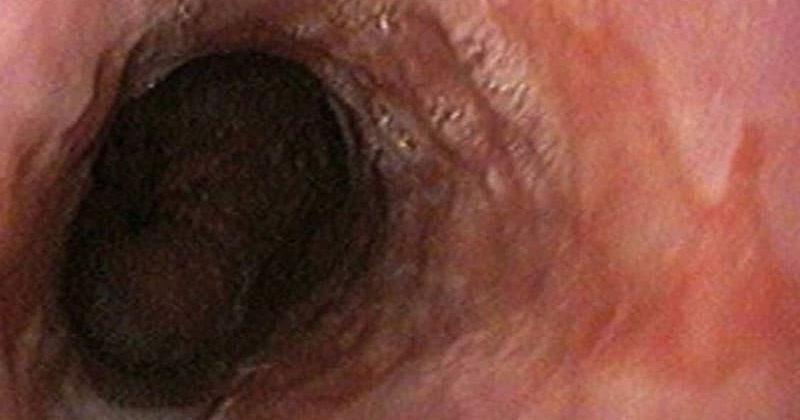TOPLINE:
For patients with Barrett esophagus, anti-reflux surgery may not reduce but rather increase the risk of esophageal cancer compared with anti-reflux medication, a new study suggests.
METHODOLOGY:
-
Researchers conducted a population-based study of all 33,939 adult patients with known Barrett esophagus in any of the national patient registries in Denmark (2012–2020), Finland (1987–1996 and 2010–2020), Norway (2008–2020), and Sweden (2006–2020).
-
Patients who underwent anti-reflux surgery (fundoplication) were compared with patients who were taking anti-reflux medication and who had not undergone surgery during the 32-year follow-up period.
-
The risk of esophageal adenocarcinoma was calculated using multivariable Cox regression analysis adjusted for age, sex, country, calendar year, and comorbidity.
TAKEAWAY:
-
Of all the patients, 542 (1.6%) underwent anti-reflux surgery. The sex distribution was similar between groups, but surgery patients were younger, had longer follow-up, and had fewer comorbidities.
-
During up to 32 years of follow-up, the overall risk for esophageal adenocarcinoma was not decreased among those who underwent surgery compared to peers who did not but rather increased (adjusted hazard ratio [HR], 1.9; 95% CI, 1.1 – 3.5).
-
The HRs did not decrease with longer follow-up but increased over time, from 1.8 within 1 to 4 years to 4.4 after 10 to 32 years’ follow-up.
IN PRACTICE:
“Although it seems logical that anti-reflux surgery would have a better cancer-preventive effect than anti-reflux medication due to the greater reduction in esophageal acid exposure and the ability to prevent all types of carcinogenic gastric content from reaching the esophagus, performing anti-reflux surgery after years of GERD may be too late to enable a cancer-preventative effect,” the authors write.
SOURCE:
The study, with first author Johan Hardvik Åkerström, MD, Karolinska Institutet, Stockholm, Sweden, was published online September 8 in Gastroenterology.
LIMITATIONS:
Data on some potentially confounding factors, such as tobacco use, body mass index, and length of Barrett segment, were not available; these factors may have influenced the choice between surgery and medication. Statistical power was reduced, particularly in the subgroup analyses, owing to the small size of group that underent anti-reflux surgery and the low number of patients who developed esophageal cancer.
DISCLOSURES:
Funding for the study was provided by the Swedish Cancer Society, the Swedish Research Council, and the Stockholm County Council. The authors have disclosed no relevant conflicts of interest.
For more news, follow Medscape on Facebook, X, Instagram, and YouTube.
Source: Read Full Article
